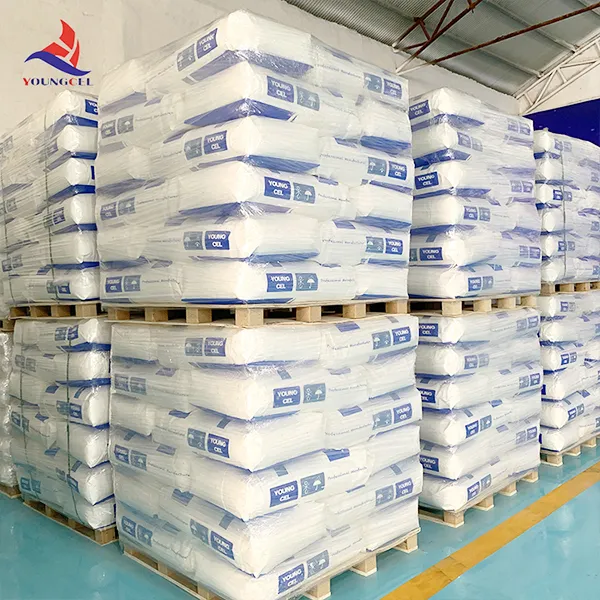HPMC for Tile Enhancing Performance in Tile Adhesives
Hydroxypropyl Methylcellulose (HPMC) has emerged as a highly effective additive in the production of tile adhesives, playing a crucial role in improving their performance characteristics. Tiles are one of the most popular materials for flooring and wall coverings due to their durability, aesthetic appeal, and ease of maintenance. However, the performance and longevity of tile installations greatly depend on the quality of the adhesive used. This is where HPMC comes into play.
HPMC is a semi-synthetic polymer derived from cellulose, a natural polymer that is abundant in nature. The modification process of cellulose results in HPMC, which possesses unique properties such as water retention, thickening, and improved adhesion when incorporated into tile adhesives. These characteristics make HPMC an invaluable component in various types of tile adhesives, including cement-based and ready-mixed formulations.
HPMC for Tile Enhancing Performance in Tile Adhesives
Furthermore, HPMC enhances the thixotropic properties of tile adhesives. Thixotropy is the ability of a material to become less viscous under shear stress. This is particularly important when applying tile adhesives on vertical surfaces. A thixotropic adhesive allows for easy application while preventing sagging or slumping of the tile, ensuring that it stays in place during installation. As the adhesive sets, its viscosity increases, providing a strong hold and securing the tiles firmly in position.
hpmc for tile

Moreover, HPMC contributes to the improved workability of tile adhesives. Installers often need to adjust tiles after application, and a well-formulated adhesive that contains HPMC allows for this maneuverability without compromising the bond. This flexibility is essential in achieving desired placements and aligning tiles perfectly, minimizing waste and ensuring a high-quality finish.
Another significant advantage of HPMC-enriched tile adhesives is their enhanced resistance to water and environmental conditions. In areas prone to moisture, such as bathrooms and kitchens, it is crucial for tile adhesives to resist mold and mildew growth. HPMC not only provides water resistance but also helps create a barrier against the penetration of moisture, thus extending the lifespan of tile installations.
The incorporation of HPMC in tile adhesives is not merely a trend; it is grounded in extensive research and practical applications. Manufacturers continue to innovate and develop formulations that optimize the benefits of HPMC, adapting to changing market demands and the diverse needs of users.
In conclusion, HPMC is a powerful additive that revolutionizes the performance of tile adhesives. Its water retention properties, thixotropic behavior, workability, and resistance to environmental factors combined make it an essential component in ensuring the durability and effectiveness of tile installations. As the construction industry evolves, HPMC stands out as a critical ingredient in delivering high-quality, reliable tile adhesives that meet the demands of contemporary building practices. Whether for residential or commercial applications, the use of HPMC in tile adhesives contributes significantly to the longevity and aesthetic appeal of tiled surfaces, making it an indispensable resource for builders and contractors alike.
-
Premium Detergent Grade HPMC Hydroxypropyl Methylcellulose: Superior Thickening & StabilityNewsAug.31,2025
-
HEC 100000 Hydroxyethylcellulose for Paint | Superior ThickeningNewsAug.30,2025
-
Wall Putty Rdp Powder Packaging DesignNewsAug.29,2025
-
Introduction to Hpmc Hydroxypropyl Methyl CellulosNewsAug.29,2025
-
Hpmc Industri Grade IntegrationNewsAug.29,2025
-
How to Choose the Right Construction AdhesiveNewsAug.29,2025




